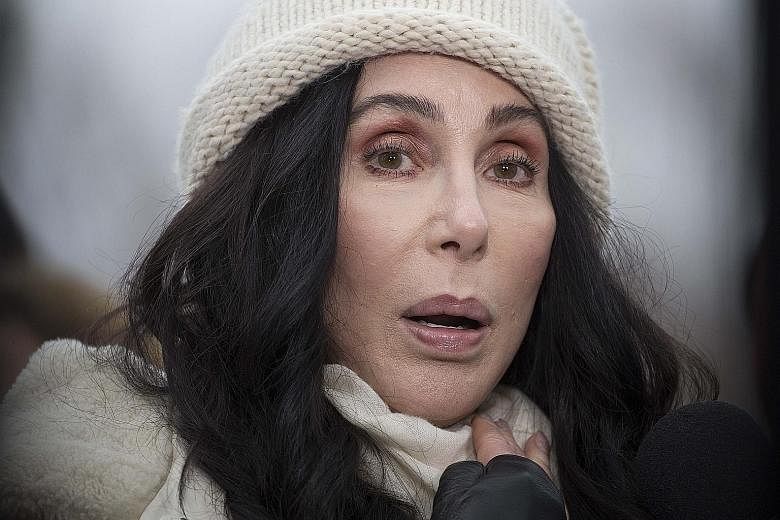NEW YORK • You have long counted on your elders to act with a dignity befitting their advanced years and to express their sagacity through philosophically weighty language.
Until, that is, the advent of social media.
"I wonder how I'd look with a beard… #ItsMy2Cents," Larry King, 83, posted on Twitter in January.
Cher, 70, tweeted a crudely Photoshopped graphic of former United States president Barack Obama and vice-president Joe Biden both playing a tuba.
And President Donald Trump, also 70, took to Twitter to - never mind.
Seniors used to maintain a wary distance from new technology, perhaps calling in someone younger to help them record an outgoing message on an answering machine.
But in this era of smartphones and broadband, the shackles are off.
The ageing hipsters of Gen X have long impersonated millennials online. Now boomers and their parents, the last adults standing, may also be succumbing to the lures of technology-assisted infantilisation.
According to a Pew Research Center report, almost three-fifths of people 65 and older reported going online in 2015, by far the fastest- growing demographic since 2000, with 62 per cent of that group using Facebook (the numbers are much smaller for Twitter and Instagram).
Diving into the Internet's refreshing fountain of youth, a surprising number of grandparents are acting like their grandchildren in ways rarely seen outside of latter-day Jack Nicholson comedies.
"The one way you can tell it's an older person using social media is when he passes on some mass- consumption piece titled 'Check this out LOL' that calls attention to itself while telling you it's supposed to be funny," said Jim O'Grady, 57, a reporter for public radio station WNYC in New York. "That's a guarantee it's not going to be funny."
Not helping their cause is that older people are late adopters, O'Grady said, and thus still unfamiliar with online mores.
"We all had to learn together how to absorb the common etiquette that we go by on social media," he said. "They're prone to those tonal mistakes more than younger people for whom it's their native language."
Beyond following youngsters, there is something inherently juvenile about social media.
Instances of blatant narcissism, for example, are at odds with what you expect of older adults, who have supposedly shed the petty, puerile vanities of the developing ego. And yet the senior set is still susceptible to the insecurities sparked by evidence of peers' seemingly happier lives.
"Even at my age, it's easy to feel competitive, jealous, left out on social media," said Ms Tracy Pennoyer, 63, a clinical psychologist focusing on diagnostic evaluations of children and adolescents in Westport, Connecticut.
"It stirs up those feelings and juvenile thoughts of 'I'm not cool' that I might have had when I was younger. You think you've outgrown those decades ago, but no, they're right there, waiting to pop out."
Yet an even stronger impulse may be the modern fixation on denying death, strengthened by medical progress.
Ms Krystine Batcho, 65, a professor of psychology at Le Moyne College in Syracuse, said: "In older literature, there was more of an acceptance of the finality of death.
"Now we have this sense that even if you can't live forever in your own physical state, you can pass on your legacy.
"One reason Facebook and social media have become so accepted is because of the promise, for better or worse, that it'll be there forever. That's our way of being immortalised."
NYTIMES

